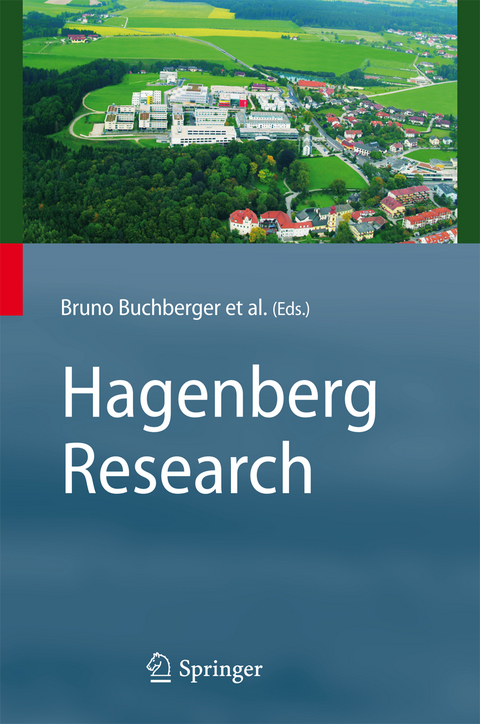
Hagenberg Research
Springer Berlin (Verlag)
978-3-642-10191-5 (ISBN)
BrunoBuchberger This book is a synopsis of basic and applied research done at the various re search institutions of the Softwarepark Hagenberg in Austria. Starting with 15 coworkers in my Research Institute for Symbolic Computation (RISC), I initiated the Softwarepark Hagenberg in 1987 on request of the Upper Aus trian Government with the objective of creating a scienti?c, technological, and economic impulse for the region and the international community. In the meantime, in a joint e?ort, the Softwarepark Hagenberg has grown to the current (2009) size of over 1000 R&D employees and 1300 students in six research institutions, 40 companies and 20 academic study programs on the bachelor, master's and PhD level. The goal of the Softwarepark Hagenberg is innovation of economy in one of the most important current technologies: software. It is the message of this book that this can only be achieved and guaranteed long term by "watering the root", namely emphasis on research, both basic and applied. In this book, we summarize what has been achieved in terms of research in the various research institutions in the Softwarepark Hagenberg and what research vision we have for the imminent future. When I founded the Softwarepark Hagenberg, in addition to the "watering the root" principle, I had the vision that such a technology park can only prosper if we realize the "magic triangle", i.e. the close interaction of research, academic education, and business applications at one site, see Figure 1.
Professor Gustav Pomberger wurde 1949 in Gosau geboren und absolvierte das Studium der Elektrotechnik und Informatik. Erste berufliche Tätigkeit als Konstruktionsingenieur im Elektromaschinenbau, 1980 Promotion, 1984 Professor an der Universität Zürich. Seit 1987ordentlicher Professor für Wirtschaftsinformatik und Software Engineering an der Johannes Kepler Universität in Linz.
Roland Wagner, Kunsthistoriker und Germanist, ist Stipendiat der Fazit-Stiftung und Spezialist für den Einfluss der Philosophie Friedrich Nietzsches auf die Kunst.
Hagenberg Research: Introduction.- Algorithms in Symbolic Computation.- Automated Reasoning.- Metaheuristic Optimization.- Software Engineering - Processes and Tools.- Data-Driven and Knowledge-Based Modeling.- Information and Semantics in Databases and on the Web.- Parallel, Distributed, and Grid Computing.- Pervasive Computing.- Interactive Displays and Next-Generation Interfaces.
"Only few visionaries, be it in science or in politics, have achieved the seemingly impossible: to turn an idea into a site of worldwide visibility." Dr. Johannes Hahn, Austrian Federal Minister of Science and Research
"For Upper Austria's future it is essential to have places where we conduct research that leads to innovation in science, technology and economics. Hagenberg is such a place." Dr. Josef Pühringer, Governor of Upper Austria
"Softwarepark Hagenberg provides exceptional know-how in research and application. This know-how enables Upper Austria's economy to push forward intelligent developments in a very significant way." Dr. Wolfgang Eder, Chairman and CEO, voestalpine AG
| Erscheint lt. Verlag | 19.10.2010 |
|---|---|
| Zusatzinfo | VIII, 488 p. |
| Verlagsort | Berlin |
| Sprache | englisch |
| Maße | 155 x 235 mm |
| Gewicht | 740 g |
| Themenwelt | Mathematik / Informatik ► Informatik ► Netzwerke |
| Informatik ► Office Programme ► Outlook | |
| Mathematik / Informatik ► Informatik ► Software Entwicklung | |
| Mathematik / Informatik ► Informatik ► Theorie / Studium | |
| Schlagworte | algorithms • automated reasoning • grid computing • Information • Innovation • Interface • interfaces • Knowledge • Knowledge-Based Modeling • Logic • Metaheuristic • Metaheuristic Optimization • Modeling • Optimization • Pervasive Computing • semantic web • Software • Software engineering • Symbolic Computation • User Interfaces |
| ISBN-10 | 3-642-10191-7 / 3642101917 |
| ISBN-13 | 978-3-642-10191-5 / 9783642101915 |
| Zustand | Neuware |
| Informationen gemäß Produktsicherheitsverordnung (GPSR) | |
| Haben Sie eine Frage zum Produkt? |
aus dem Bereich


